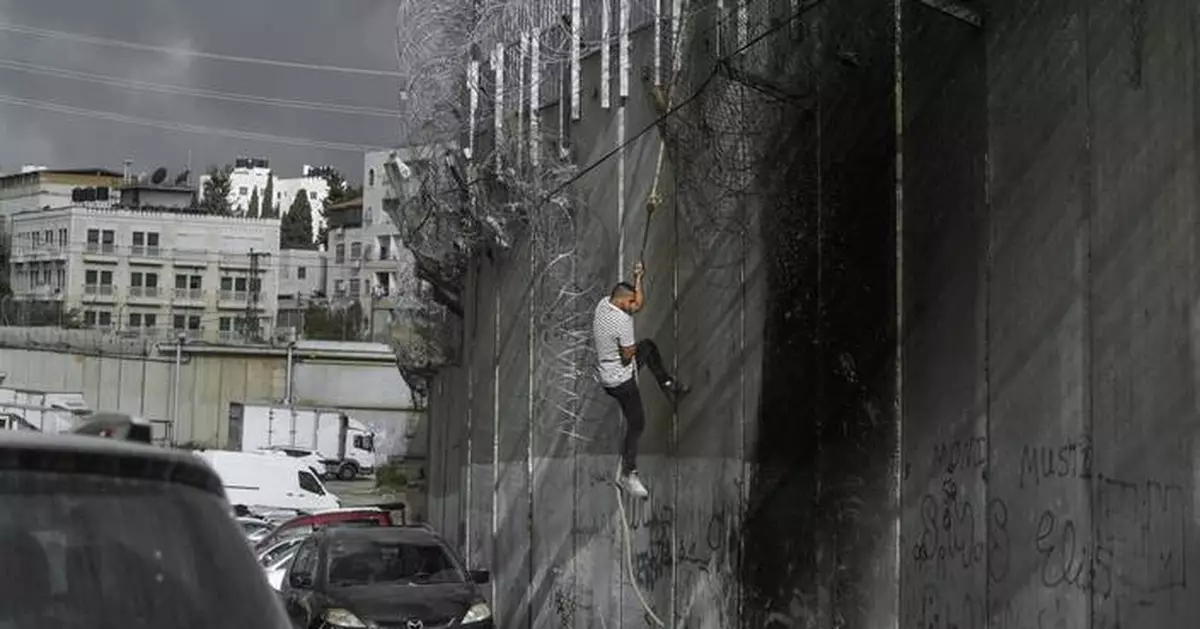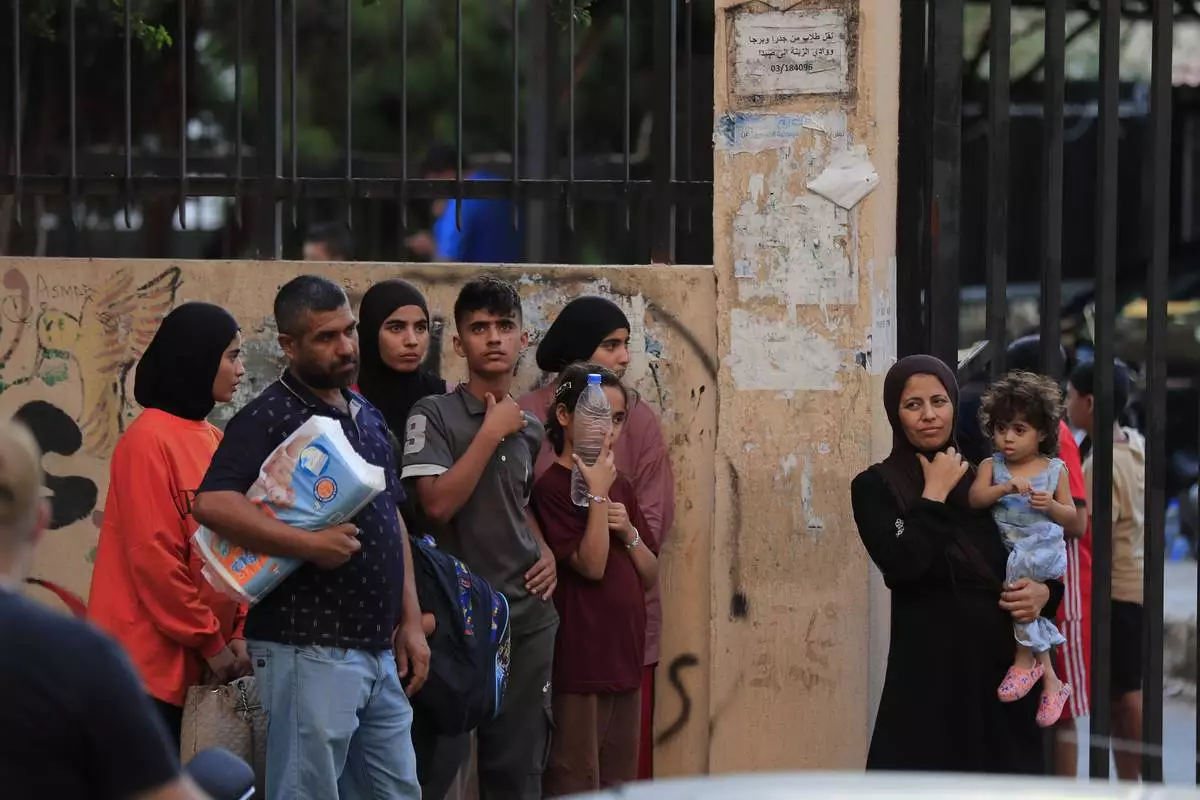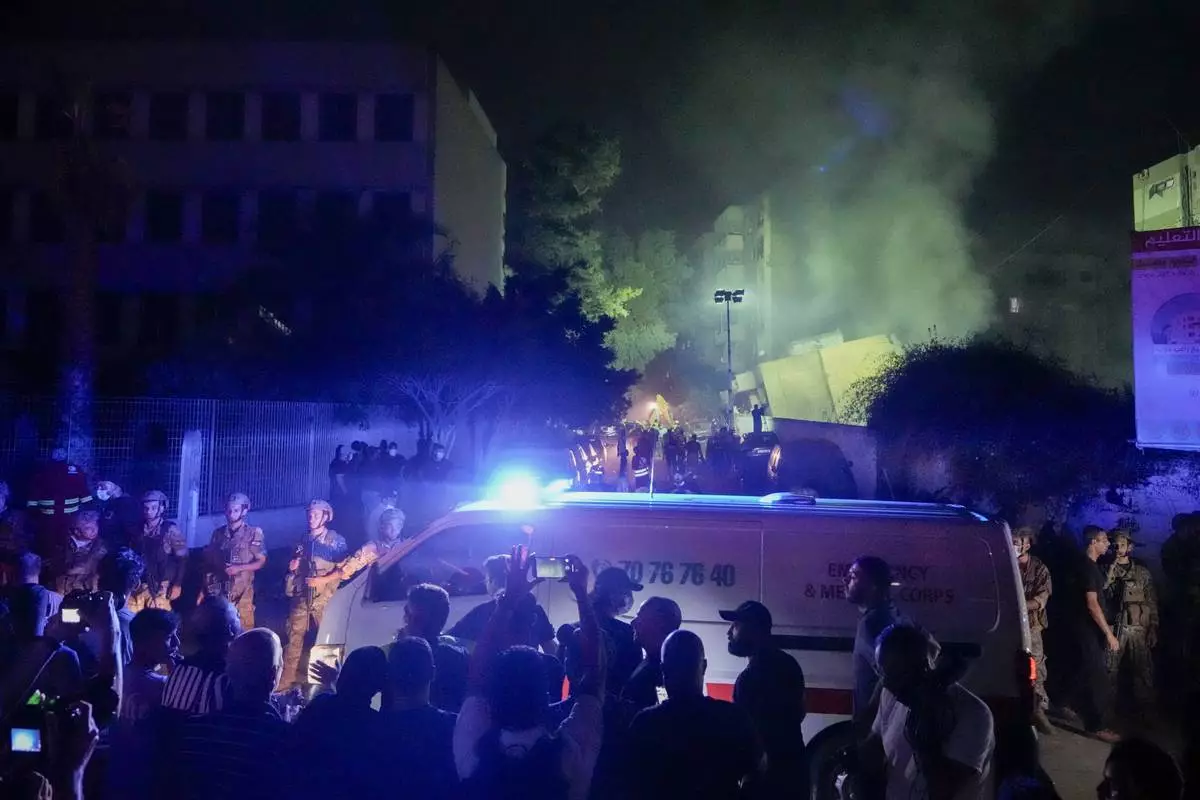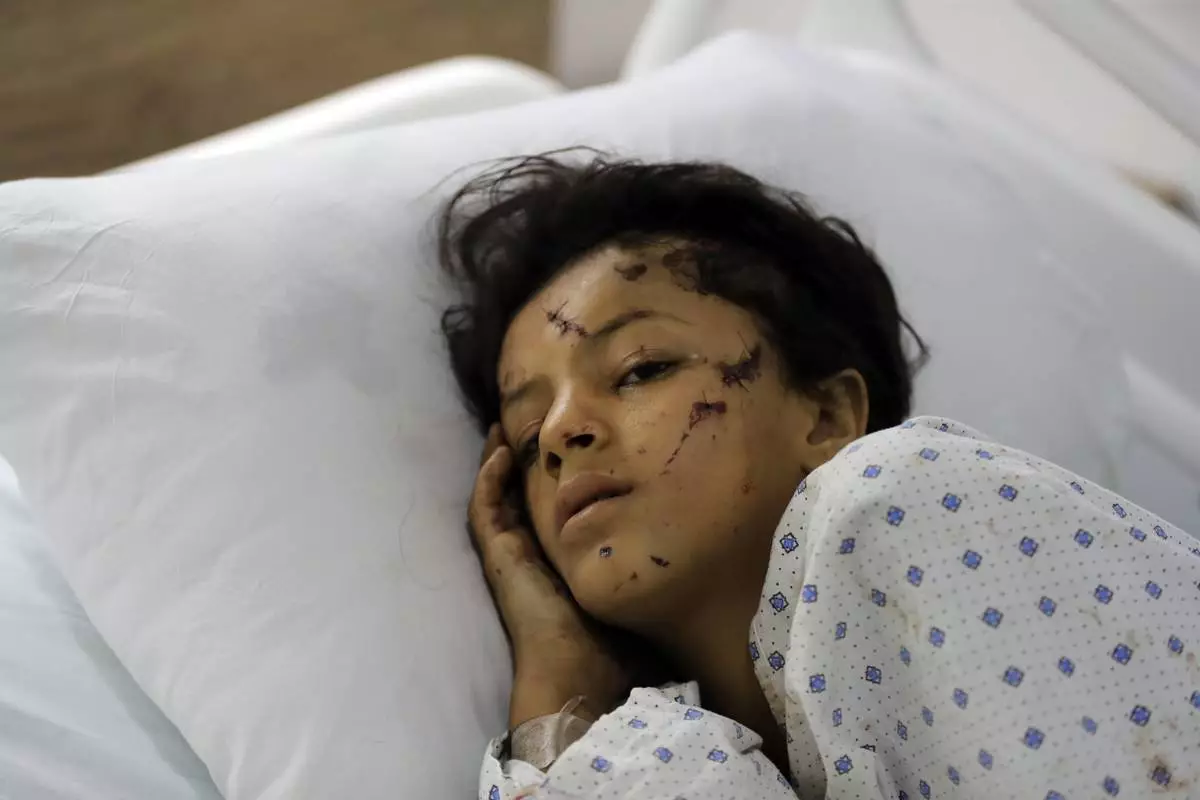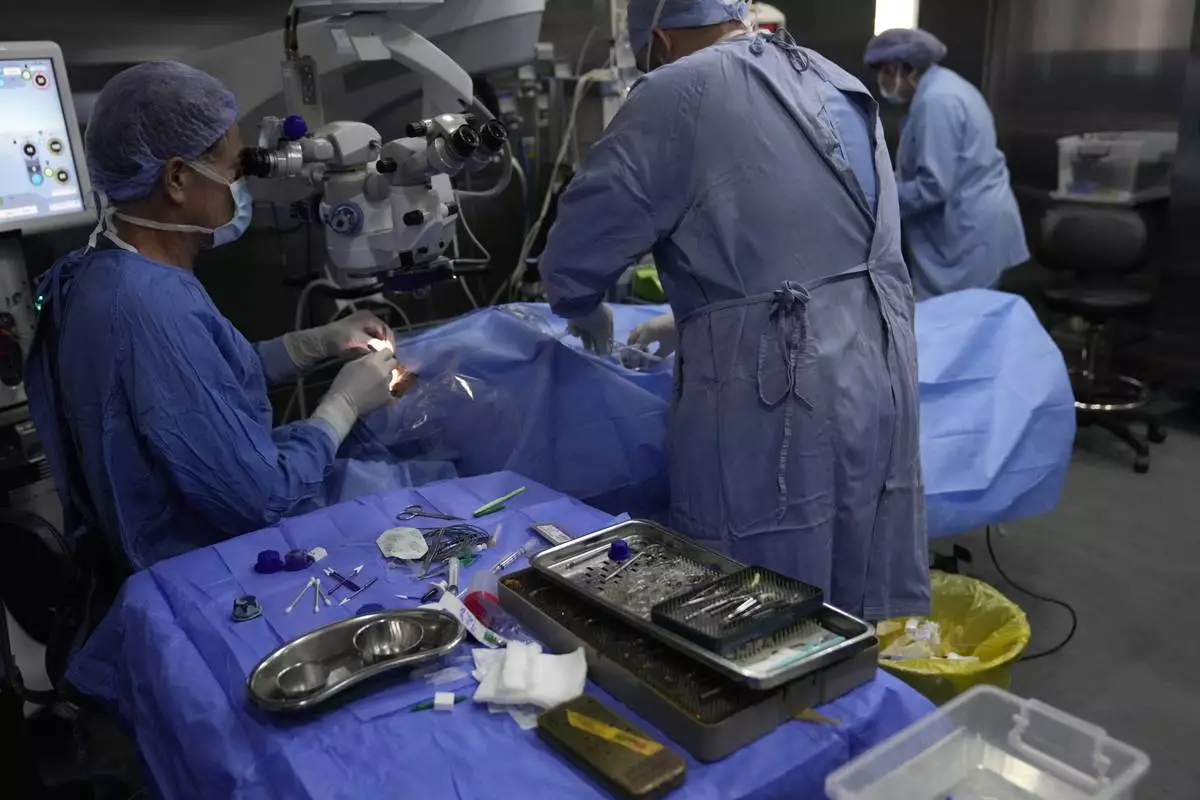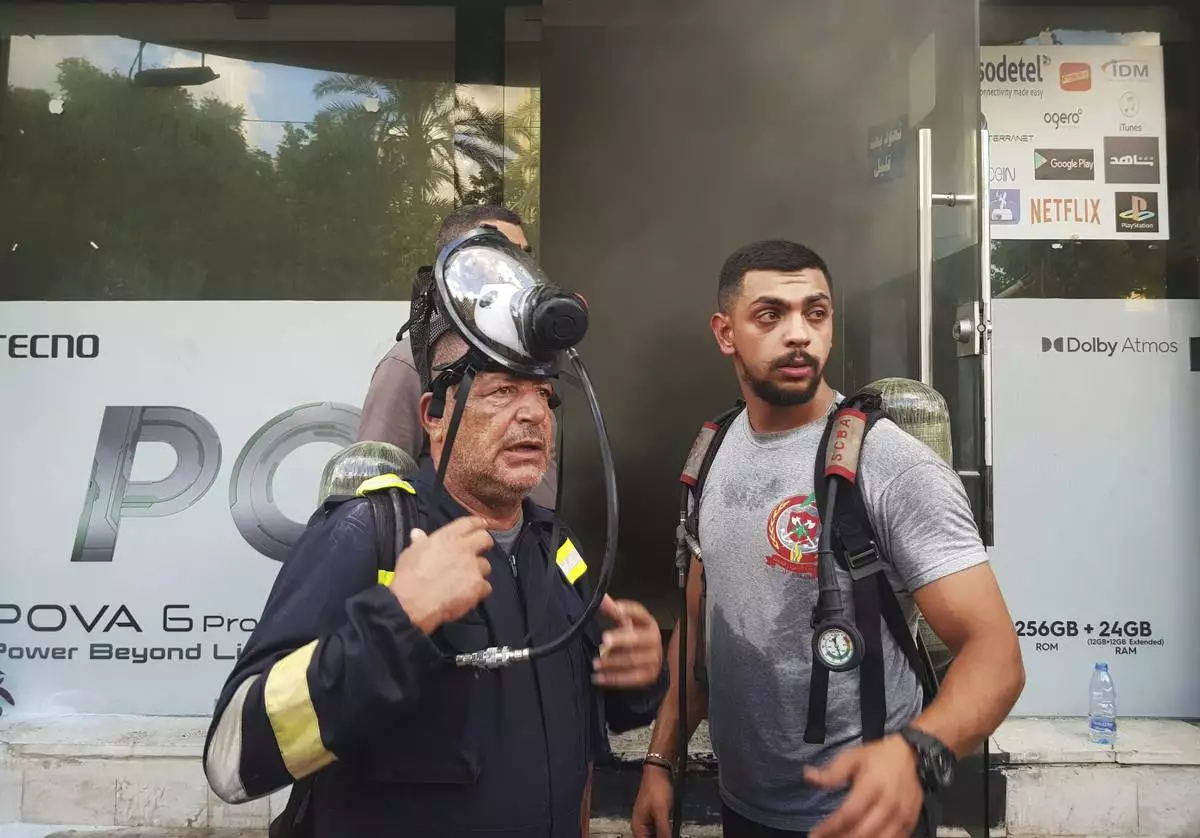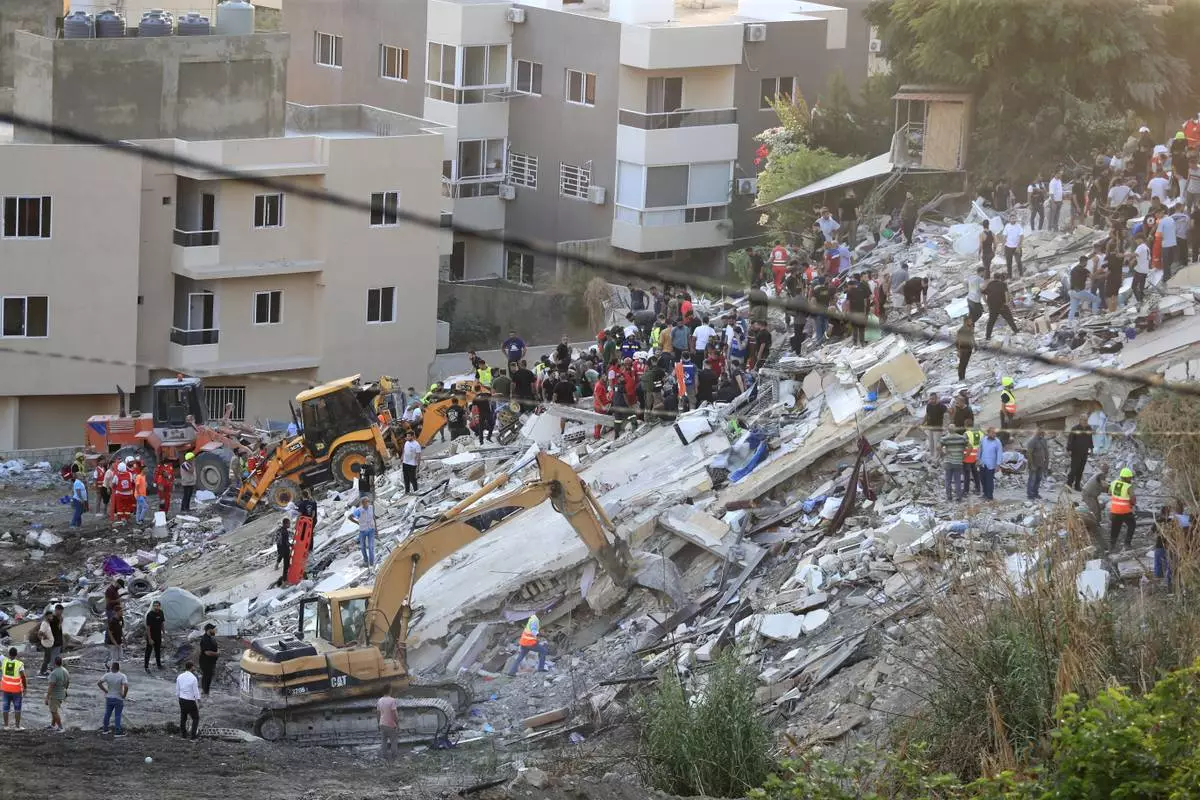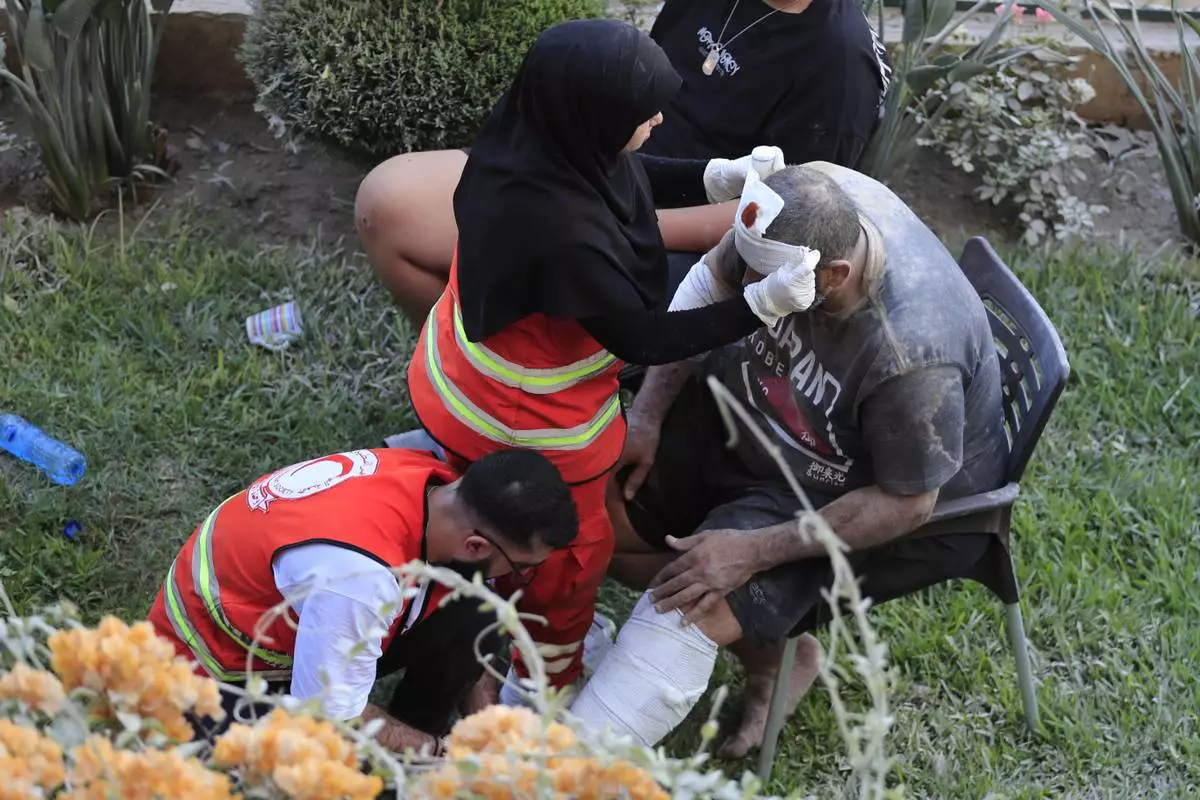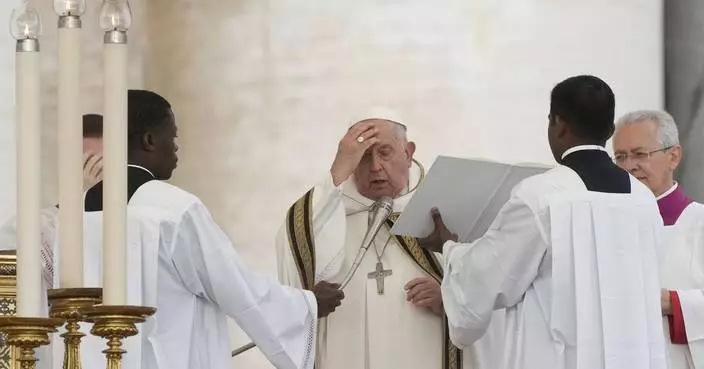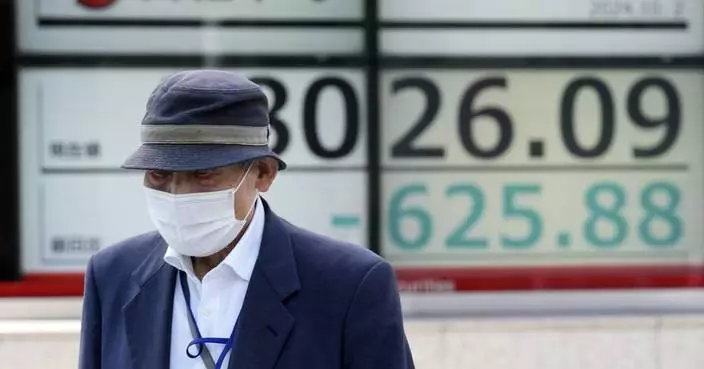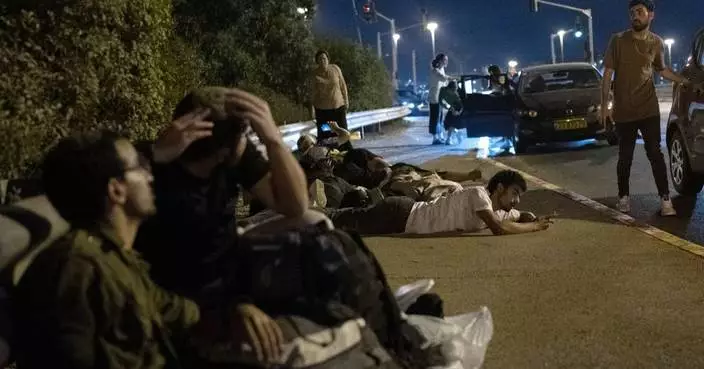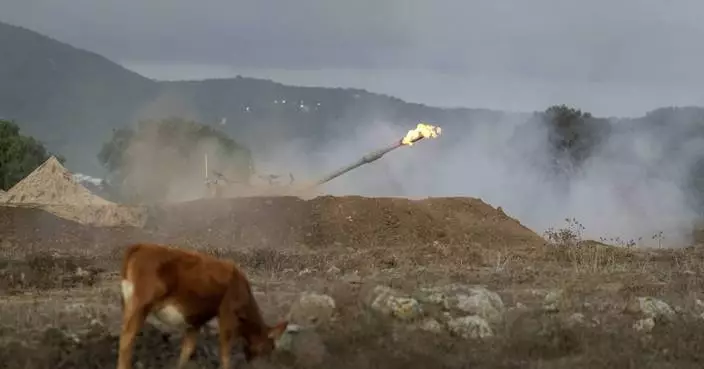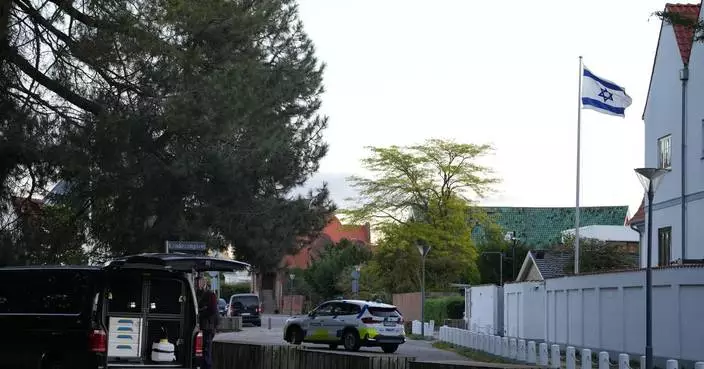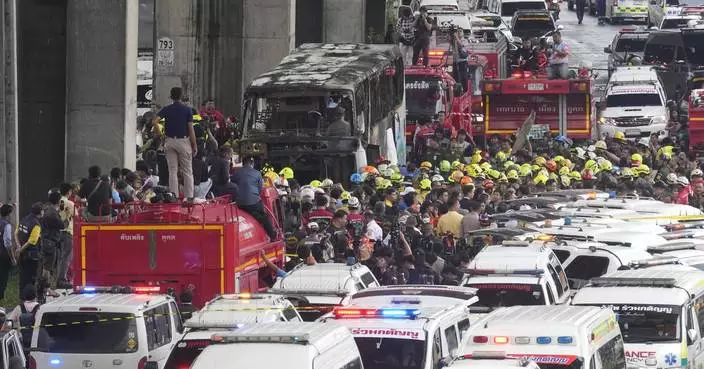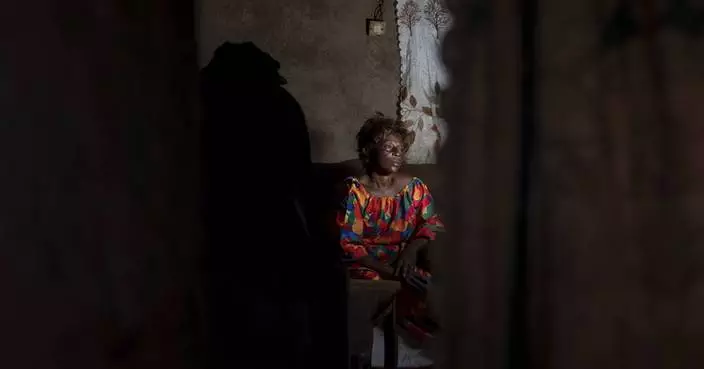YATTA, West Bank (AP) — At dawn in mid-May, Sayyed Ayyed and dozens of other unemployed Palestinian men gathered at the foot of the towering wall of concrete and barbed wire dividing the occupied West Bank from Israel.
A smuggler was there with a ladder and ropes. Each man handed over the equivalent of $100. Ayyed waited his turn as others clambered over.
The 30-year-old father of two young daughters hadn’t found work for a year. Debts were mounting. Rent had to be paid. On the Israeli side, there was the lure of work on a construction site. He just had to get over the wall.
“When we reach the point where you see that your children do not have food,” he said, “the barrier of fear is broken.”
A year of war in Gaza has reverberated across the West Bank, where the World Bank warns the economy is at risk of collapse because of Israeli restrictions barring Palestinian laborers from entering the country for work, and the biggest wave of violence in decades.
Unemployment has skyrocketed, reaching 30% from around 12% before the war. The past year, some 300,000 Palestinians in the West Bank, many of whom worked in Israel, have lost their jobs, the Palestinian Economy Ministry says. Over the first quarter of 2024, the territory’s economy contracted by 25%, according to the World Bank.
Desperate for jobs, some Palestinians are resorting to smuggling themselves at great personal risk through the guarded barrier and into Israel.
When they find them, Israeli security forces arrest them — or at times open fire. There are no official figures from Palestinian authorities about workers killed or injured by Israeli gunfire trying to cross the barrier. The Associated Press spoke to families of three Palestinians who said their relatives were killed trying to sneak across.
“These people are being shot at trying to go to work,” said Assaf Adiv, director of MAAN, a worker’s association that focuses on Palestinian labor rights.
Before the war, some 150,000 Palestinians from the West Bank were crossing legally every day into Israel to work, mainly in construction, manufacturing and agriculture.
After Hamas attacked Israel on Oct. 7, Israeli authorities barred entry to most Palestinians, saying it was necessary for security. Tens of thousands of Palestinians became jobless overnight.
Eyad al-Najjar, a 47-year-old laborer from a village near the West Bank town of Yatta, slipped into Israel through a barbed-wire section of the barrier in July, earning the equivalent of $650 for a week’s work, his family said.
Then his son got married. The wedding set the family back $8,000. So al-Najjar tried his luck again.
He approached a hole in the barrier Aug. 26, three days after the wedding. Israeli troops spotted al-Najjar and opened fire, killing him with a shot to the head, his relatives said.
“His children will have to work to close this debt in the future,” relative Jawadat al-Najjar said. “No one helps in these difficult days.”
The Israeli military told the AP it couldn't comment on the shooting without specific coordinates of where relatives said it happened.
“The IDF forces work to prevent illegal infiltrations and to maintain the security of the barrier and the safety of residents,” it said in a statement. “The forces conduct proactive ambushes along the barrier, arresting infiltrators and infiltrator smugglers and operate both overtly and covertly to protect the barrier area.”
Labor rights experts say infiltrations happen daily, often involving dozens of Palestinians at a time.
Many Palestinians found their livelihoods gutted by the restrictions. Some sold possessions. On West Bank roadsides, children hawk tissues, bottled water and air fresheners. Some men have tried their hand at selling sandwiches at makeshift street stalls.
It isn't just the cutoff from jobs in Israel. The military also tightened its grip in the West Bank, implementing a network of new military checkpoints that have hampered the movement of commerce and workers.
Vehicles can wait for hours as soldiers inspect everyone, unlike before the war, when many were waved through. Other roads are shut off completely. In one case, the army closed a road linking 12 villages to the southern town of Dura, said local activist Badawi Jawaed. Many workers couldn’t reach their jobs and were laid off, he said.
Violence has surged, with increased Israeli raids targeting armed groups. More than 700 West Bank Palestinians have been killed by Israeli fire, the Palestinian Health Ministry says. Many were shot dead in armed clashes, others for throwing stones at troops. But some appear to have posed no apparent threat.
In Israel, Palestinians can earn double or triple a West Bank salary. Standing in their way is Israel’s barrier, running some 700 kilometers (400 miles) long and peaking at 7-meters (23-feet) tall.
Construction of the barrier began in 2002 after Palestinians from the territory carried out scores of suicide bombings and other attacks that killed Israeli civilians at the height of the second intifada.
Late Tuesday, two Palestinian men from the West Bank city of Hebron opened fire on a boulevard in the Jaffa neighborhood in Tel Aviv killing at least seven people, Israeli police said. It remains unclear how they crossed into Israel.
Many climb the barrier with ladders and ropes. Others hide in trucks that pass through checkpoints. Some slip through holes in fencing, workers and experts said.
Ayyed once worked for an Israeli construction company that paid 7,000 shekels ($1,850) monthly. Cut off from the job since the war began, he searched for work in his home city of Jenin, in the northern West Bank.
Ayyed said he tried grocery stores and restaurants, but no one was hiring.
To get by, he borrowed money from friends, racking up around $1,600 in debt. He cut back on water and electricity. By spring, he had no one left to borrow from and a $500 monthly rent bill to pay.
So he decided to risk it.
As he scaled the wall, the ladder slipped. Ayyed fell to the ground on the West Bank side, breaking his leg. He limped home penniless.
Palestinian smugglers or middlemen linked to gangs on both sides of the barrier arrange the crossings. They provide ladders and rope, as well as vehicles on the Israeli side to whisk workers away from the patrolled barrier.
They charge 300 to 1,000 shekels ($79 to $260), said Arafat Amro, a Palestinian labor rights expert.
Once through, work isn't hard to find, due to a labor shortage across Israel, mostly in construction and agriculture, Palestinian workers and Amro said.
To evade Israeli authorities, Palestinian workers are “sleeping in the fields, they sleep in the farms, they sleep under the trees, at the construction sites,” Amro said.
Raouf Adra, a laborer from Yatta, said he found two week’s work on a construction site in the southern Israeli town of Dimona that would have paid 350 shekels ($65) daily. After climbing the barrier and reaching the site, he was told he was forbidden to leave after his shifts, to prevent discovery.
The next day, Israeli police stormed the site, arresting Adra and several other Palestinians. The Israeli site manager was nowhere to be seen.
“He ran away,” Adra said.
Adra was handed a 40-day prison sentence and fined 1,500 shekels ($390). Once released, he was transported back to the West Bank and banned from entering Israel for three years.
Unable to walk after his fall in May, Ayyed said he had to sell the gold his family gave his wife as a wedding present and then his car.
“I know people who sold their furniture,” he said.
Four months later, his broken leg is almost completely healed.
Asked if he would try again, he replied: “If the situation remains the same, I will consider it.”
Associated Press journalist Jalal Bwaitel contributed to this report from the West Bank city of Ramallah.
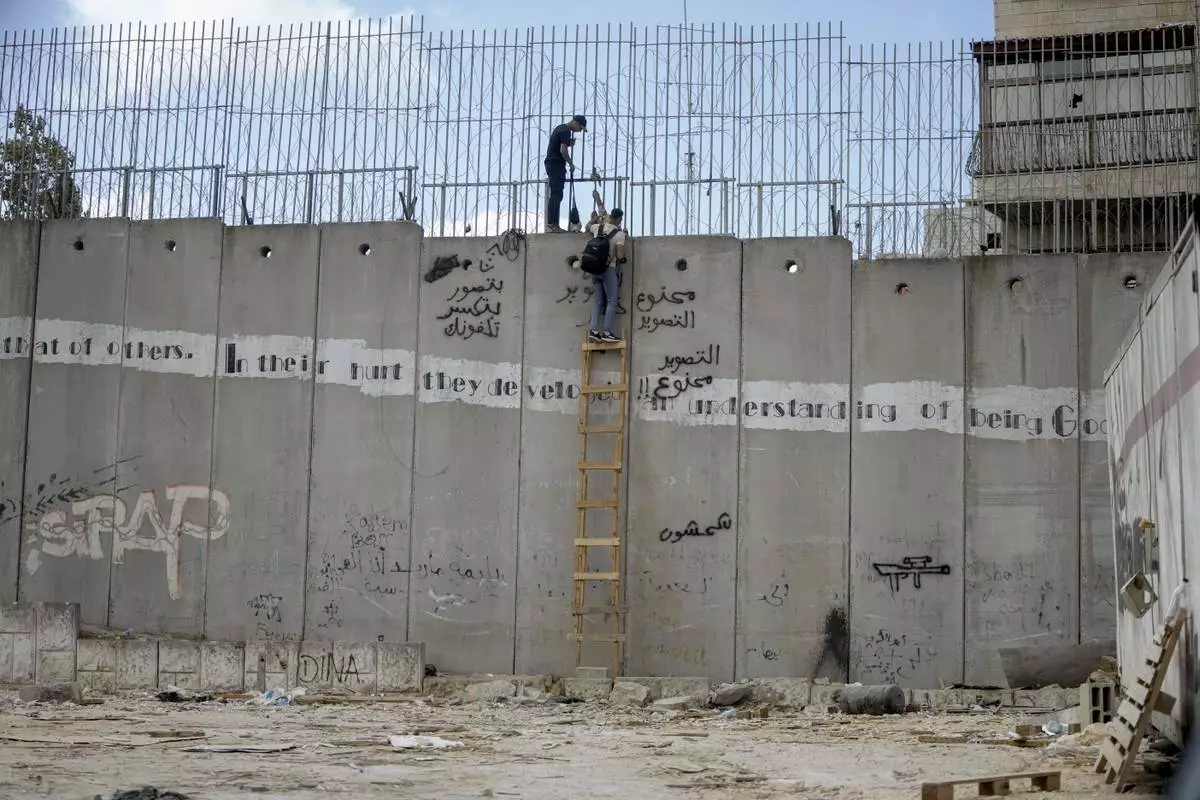
Palestinian men climb the separation wall at the town of al-Ram to illegally cross into Jerusalem, Sunday, Sept. 15, 2024. (AP Photo/Mahmoud Illean)
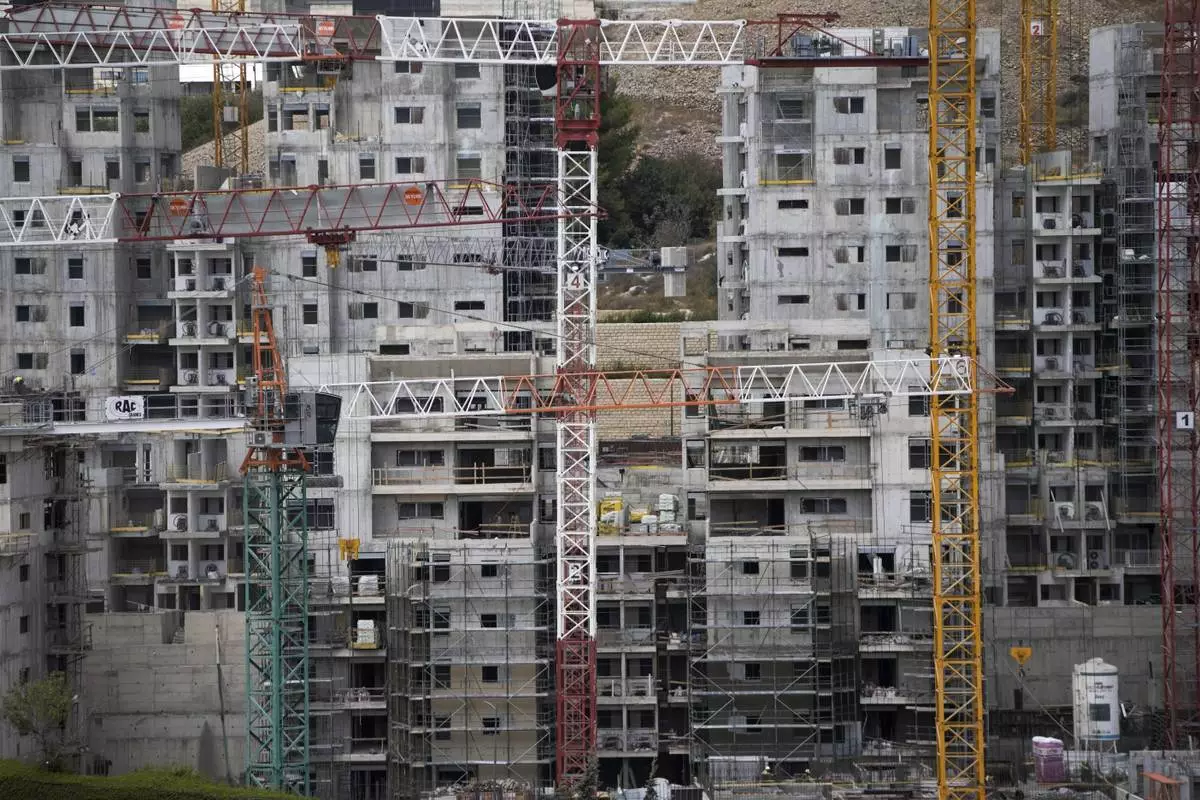
A construction site in Jerusalem Monday, Sept. 16, 2024. (AP Photo/Mahmoud Illean)
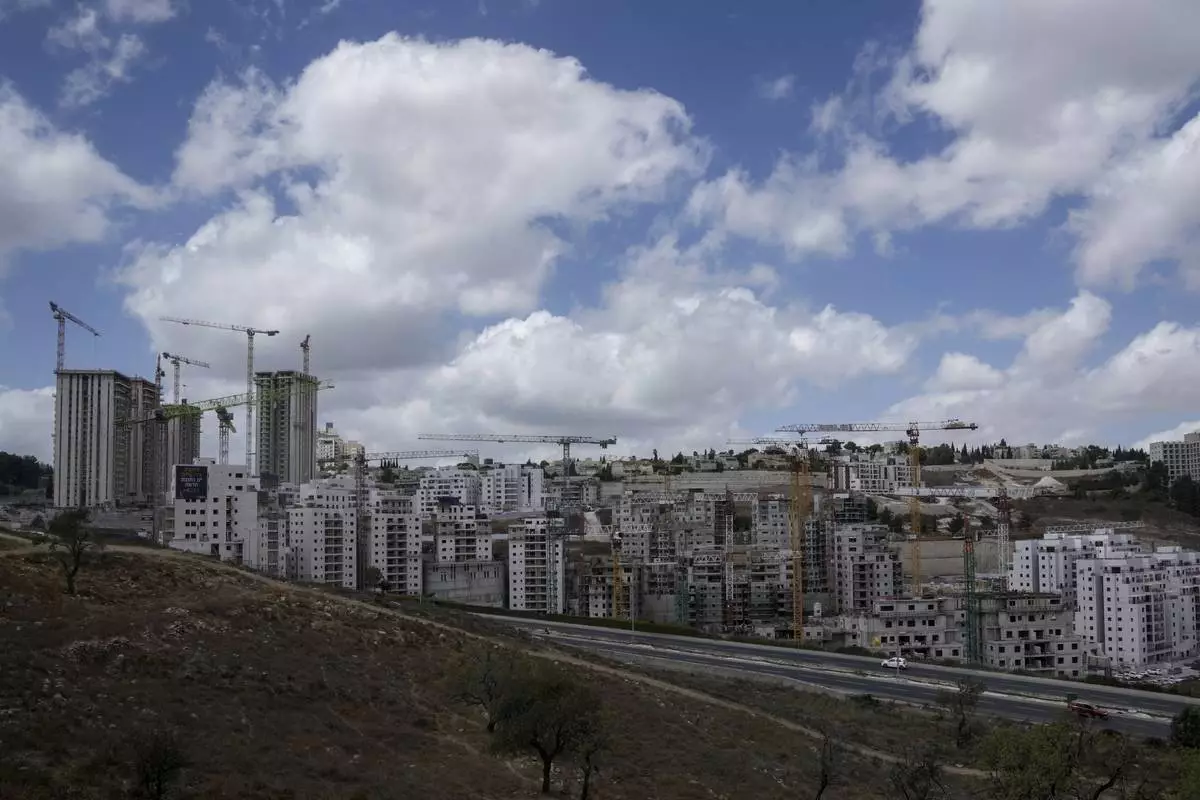
A view of a construction site in Jerusalem on Monday, Sept. 16, 2024. (AP Photo/Mahmoud Illean)
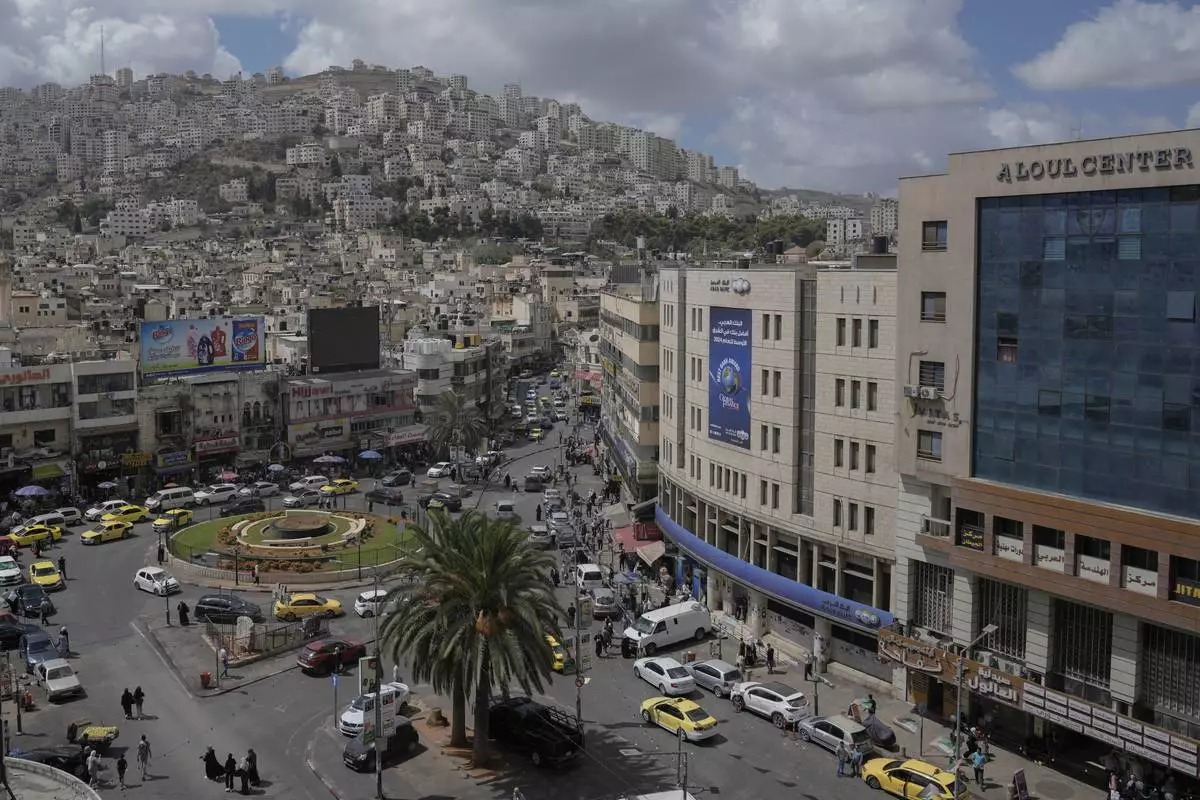
A general view of the West Bank city of Nablus Sunday, Sept. 15, 2024. (AP Photo/Majdi Mohammed)
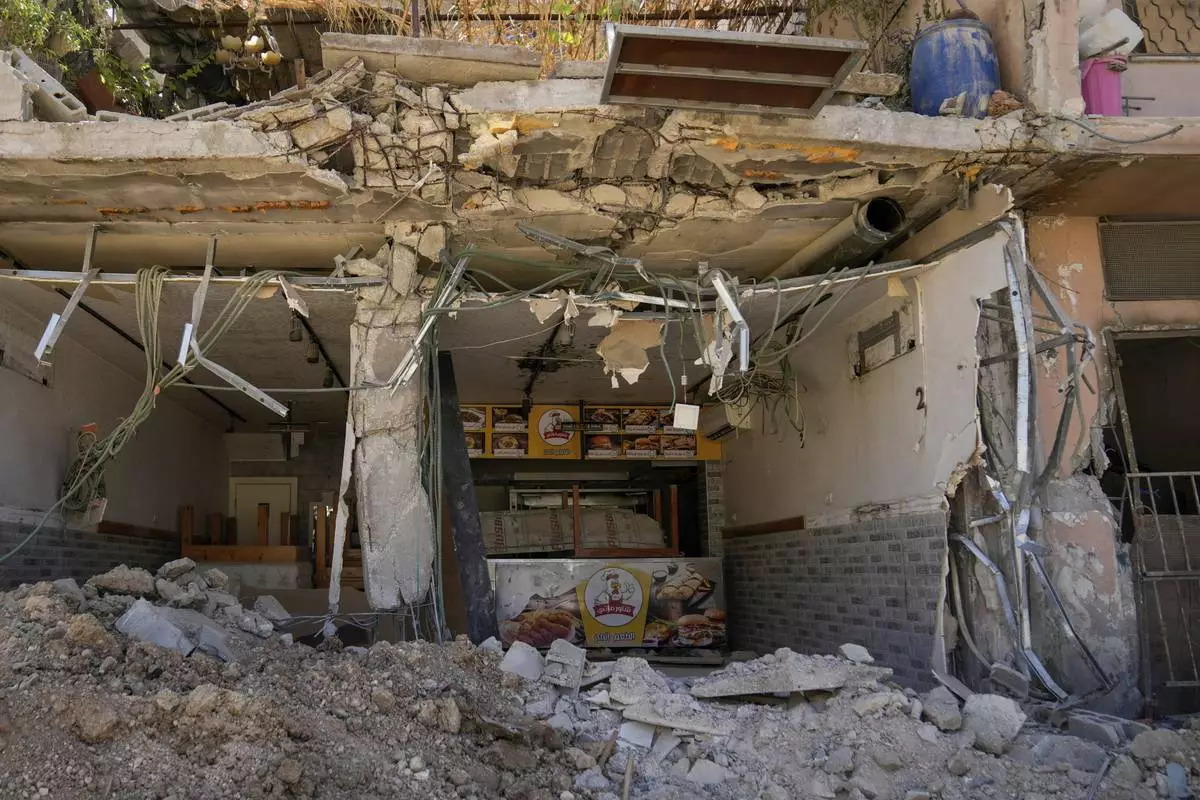
A destroyed restaurant in the West Bank refugee camp of Nur Shams, during the Israeli army operation in Tulkarem Thursday, Sept. 12, 2024. (AP Photo/Nasser Nasser)
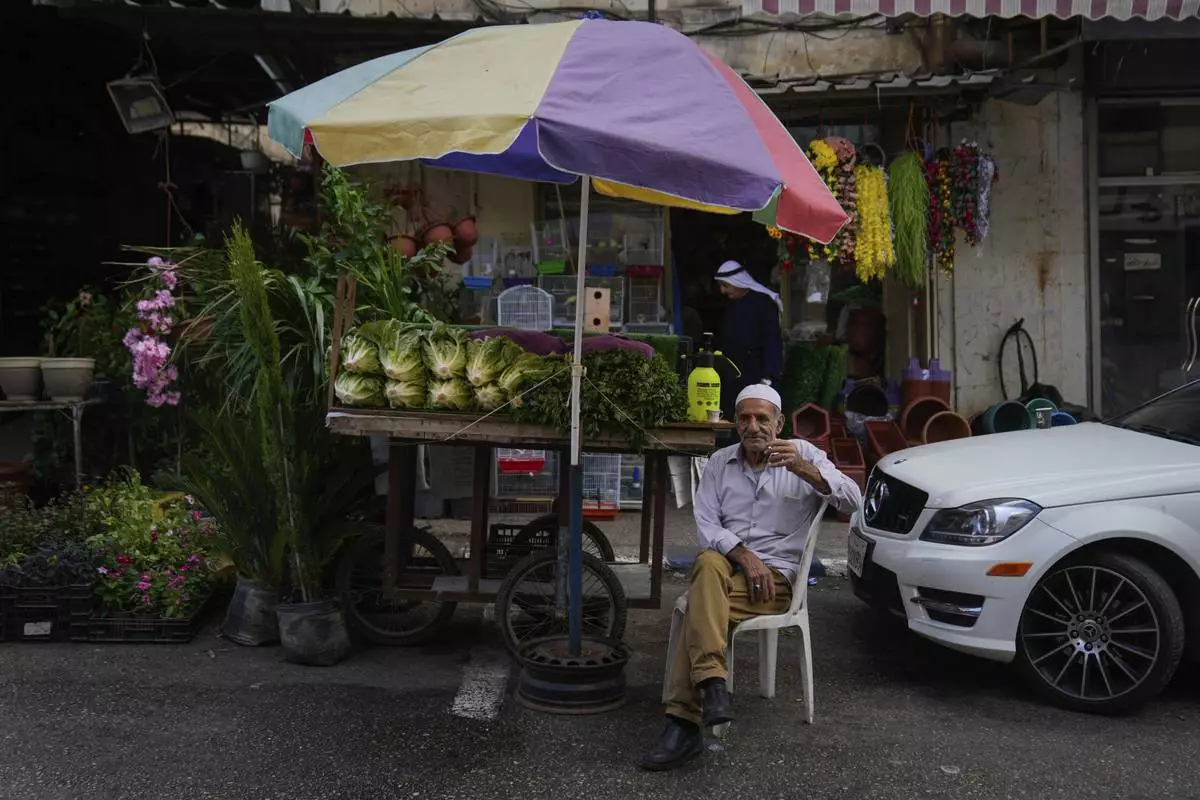
A Palestinian street vendor sits by his cart that is loaded with vegetables while he waits for customers, in the West Bank city of Nablus Monday, Sept. 16, 2024. (AP Photo/Nasser Nasser)
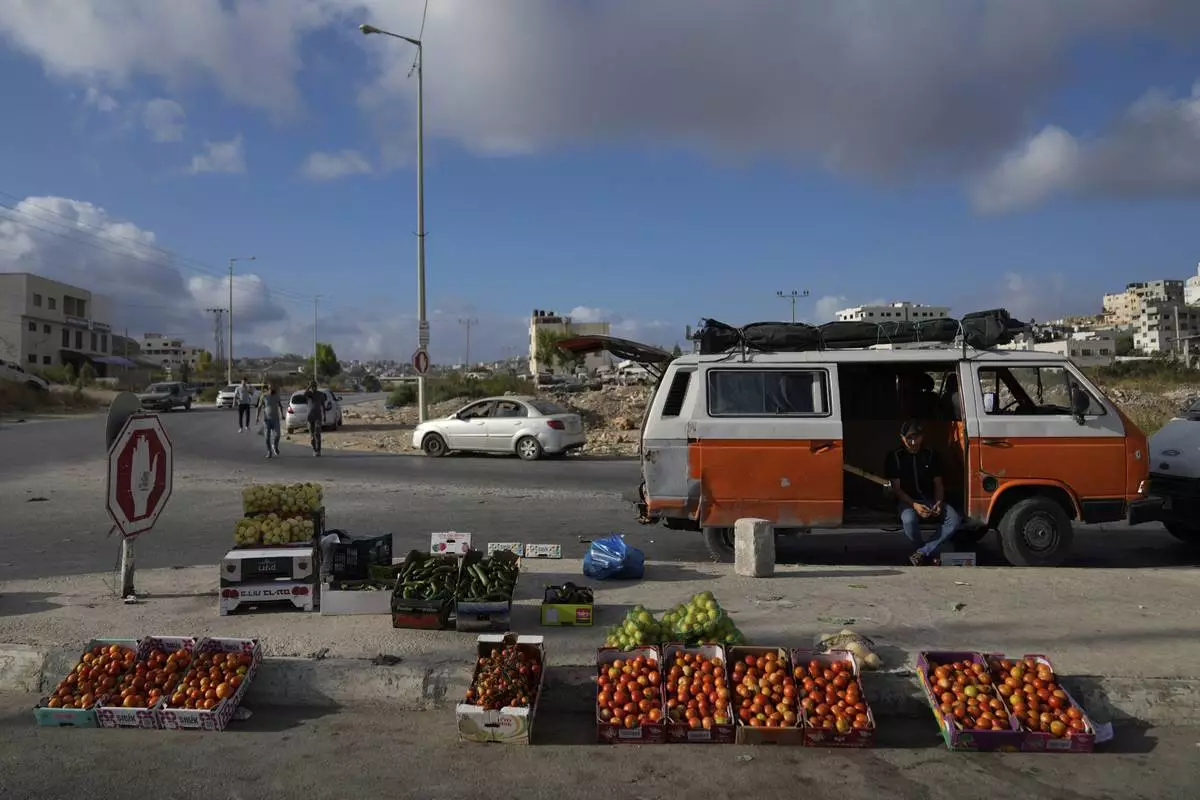
A Palestinian street vendor waits for customers while he displays vegetables for sale in the weekly market at the eastern outskirts of the West Bank city of Nablus Monday, Sept. 16, 2024. (AP Photo/Nasser Nasser)
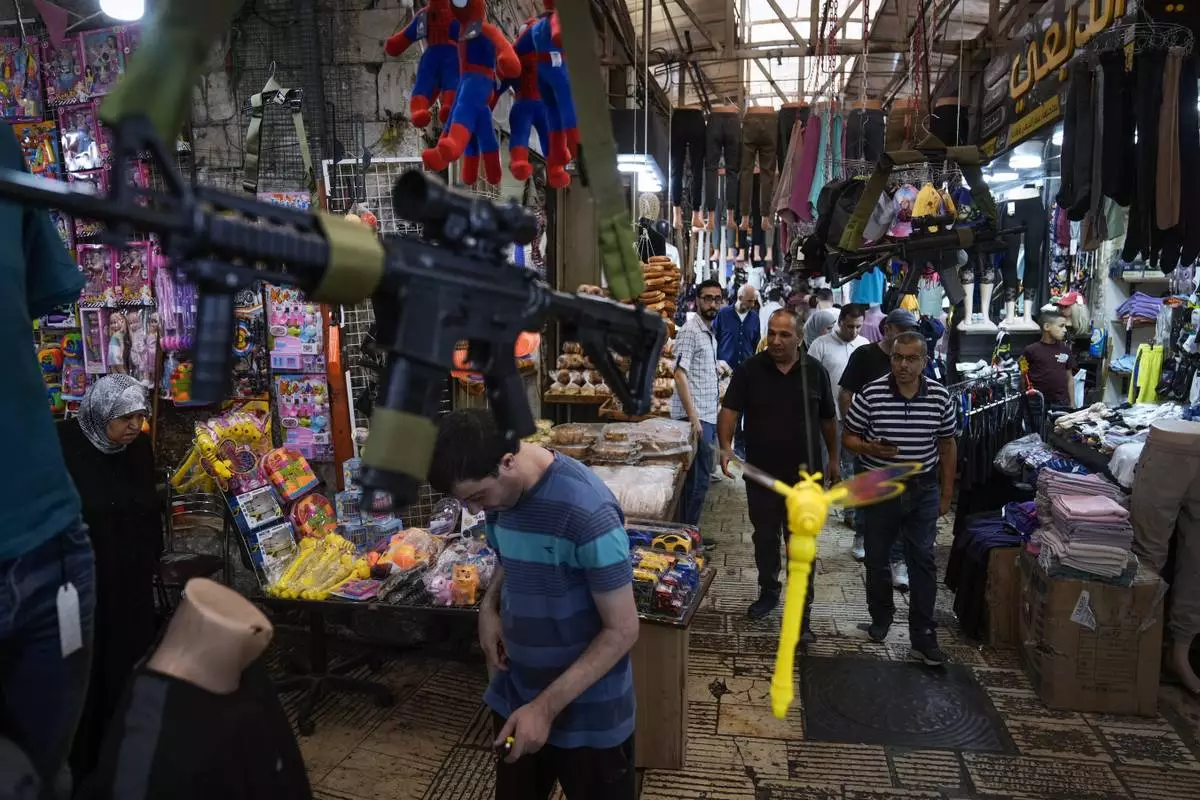
Palestinians shop at the commercial center of the old town, in the West Bank city of Nablus Sunday, Sept. 15, 2024. (AP Photo/Majdi Mohammed)
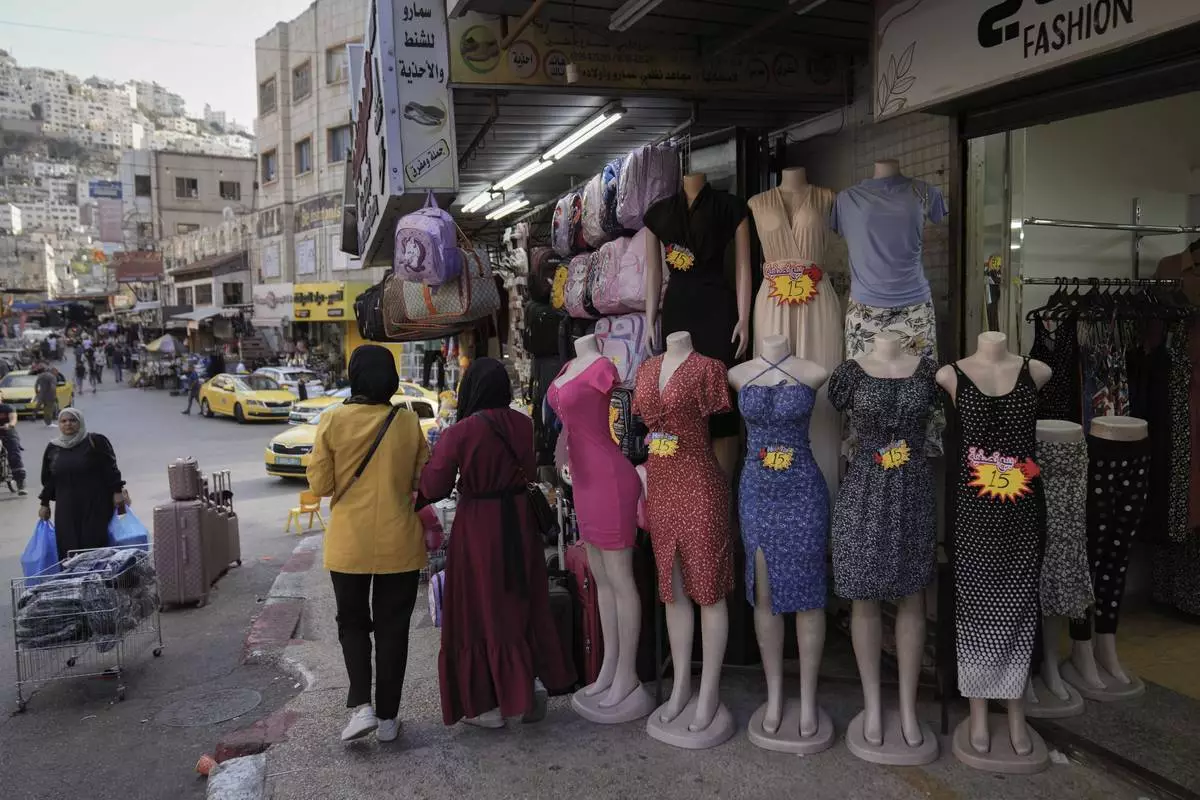
Palestinian women shop at the commercial center of the West Bank city of Nablus Saturday, Sept. 14, 2024. (AP Photo/Nasser Nasser)
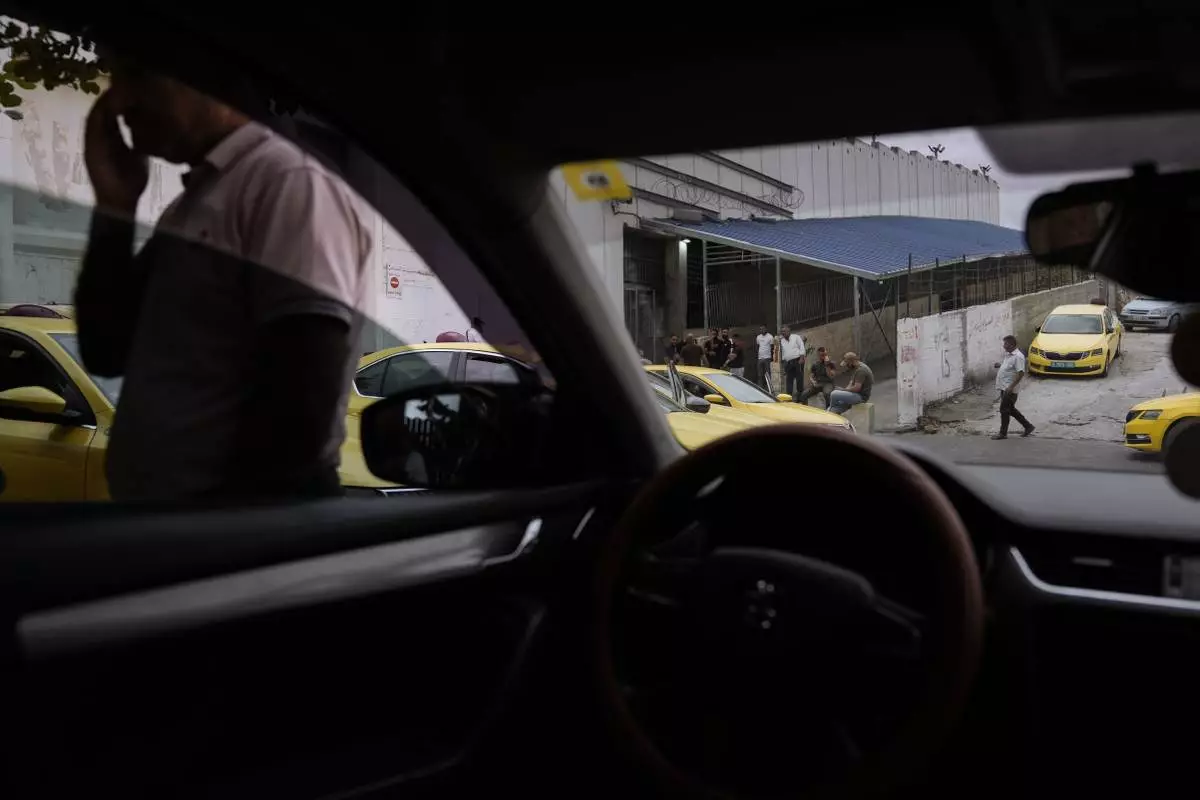
Palestinian taxi drivers gather in front of the Israeli army checkpoint between the West Bank city of Bethlehem and Jerusalem, Tuesday, Sept. 17, 2024. (AP Photo/Mahmoud Illean)
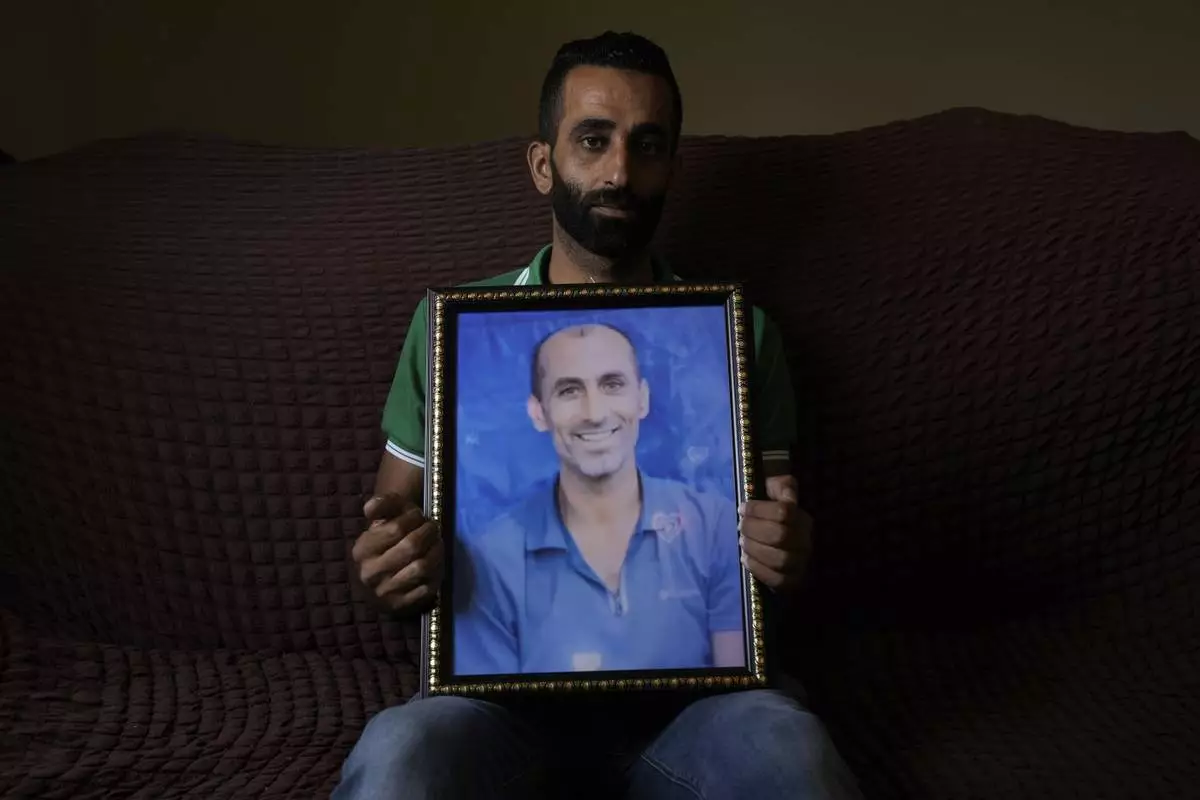
Palestinian Alaa al-Najjar holds a framed photo of his late brother Eyad al-Najjar, 47, at the family house in the West Bank village of Khalet al-Maya, east of Yatta Wednesday, Sept. 18, 2024. (AP Photo/Mahmoud Illean)
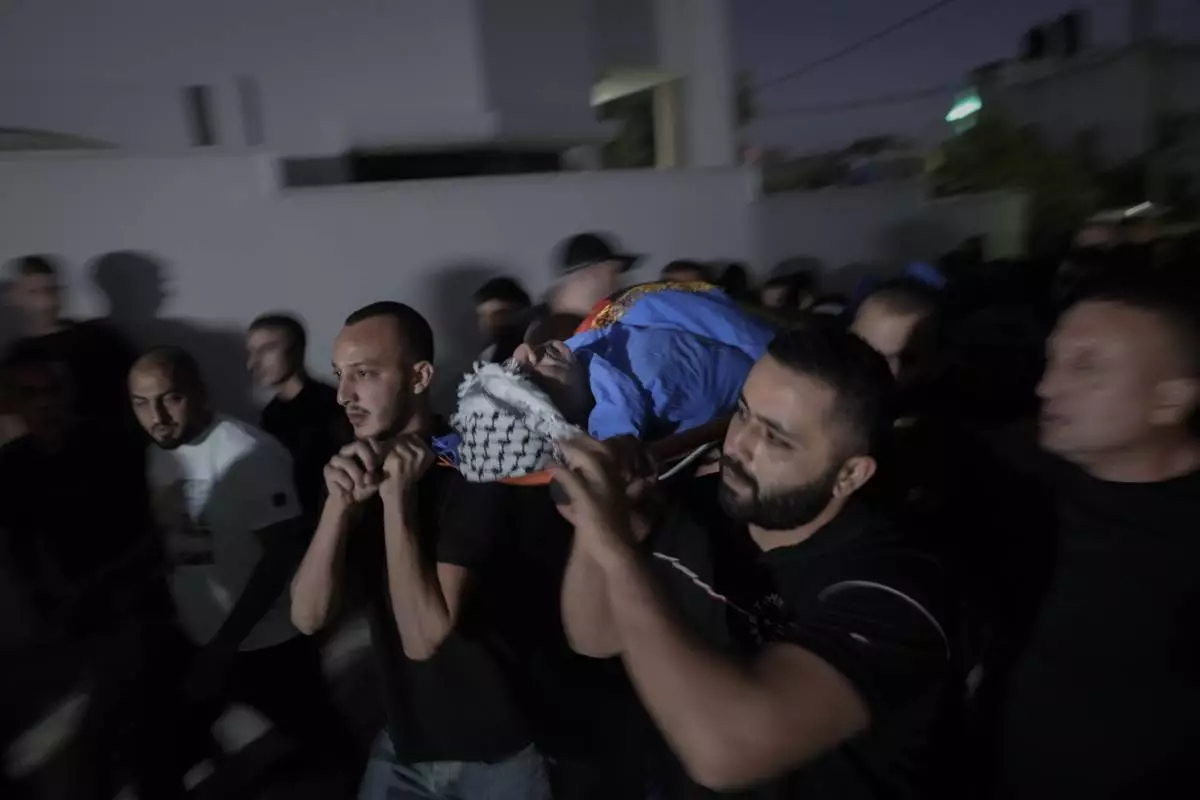
Mourners carry the body of Sameer A'mar, 55, during his funeral in the West Bank town of Shuweika, north of Tulkarem, Tuesday, Sept. 17, 2024. A'mar was shot dead by Israel forces near the separation barrier in mid-September according to Wafa, the official Palestinian news agency. (AP Photo/Majdi Mohammed)
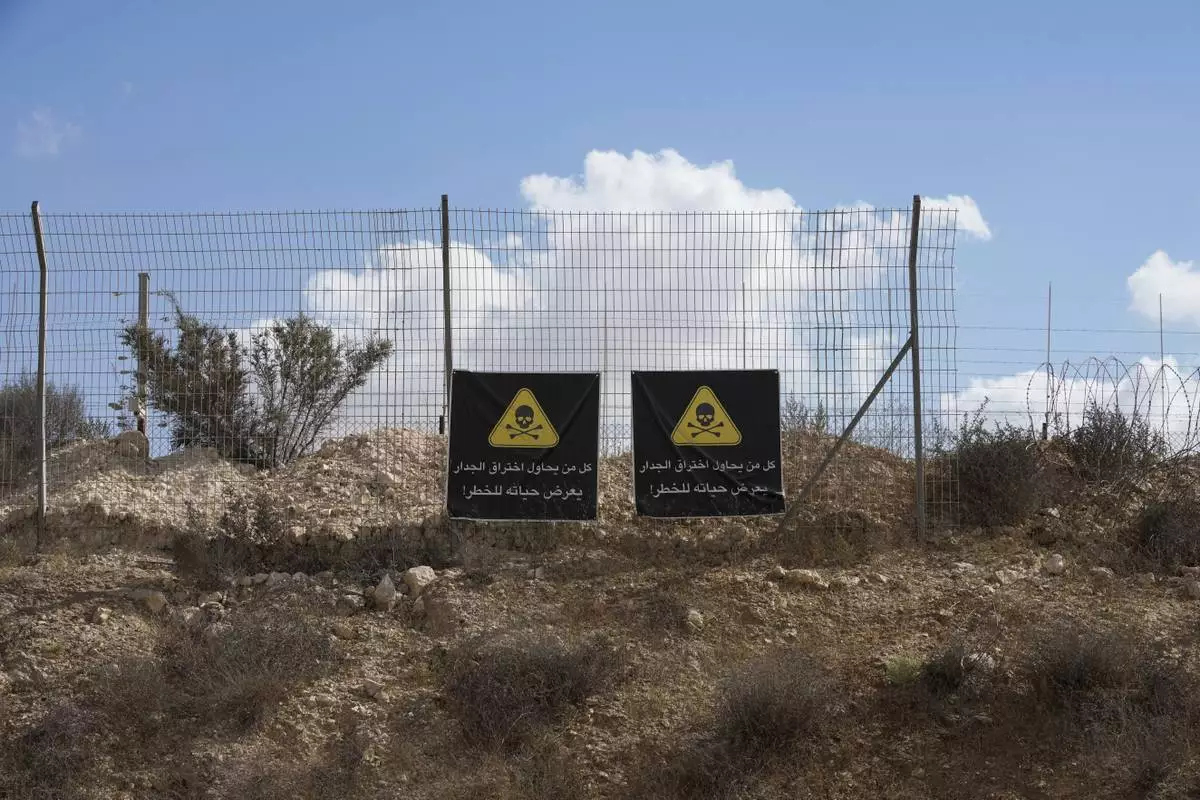
A section of the separation barrier with a warning sign that reads "any one who attempts to break through the barrier will put his life in danger," at the outskirts of the West Bank city of Dhahiriya Wednesday, Sept. 18, 2024. (AP Photo/Mahmoud Illean)
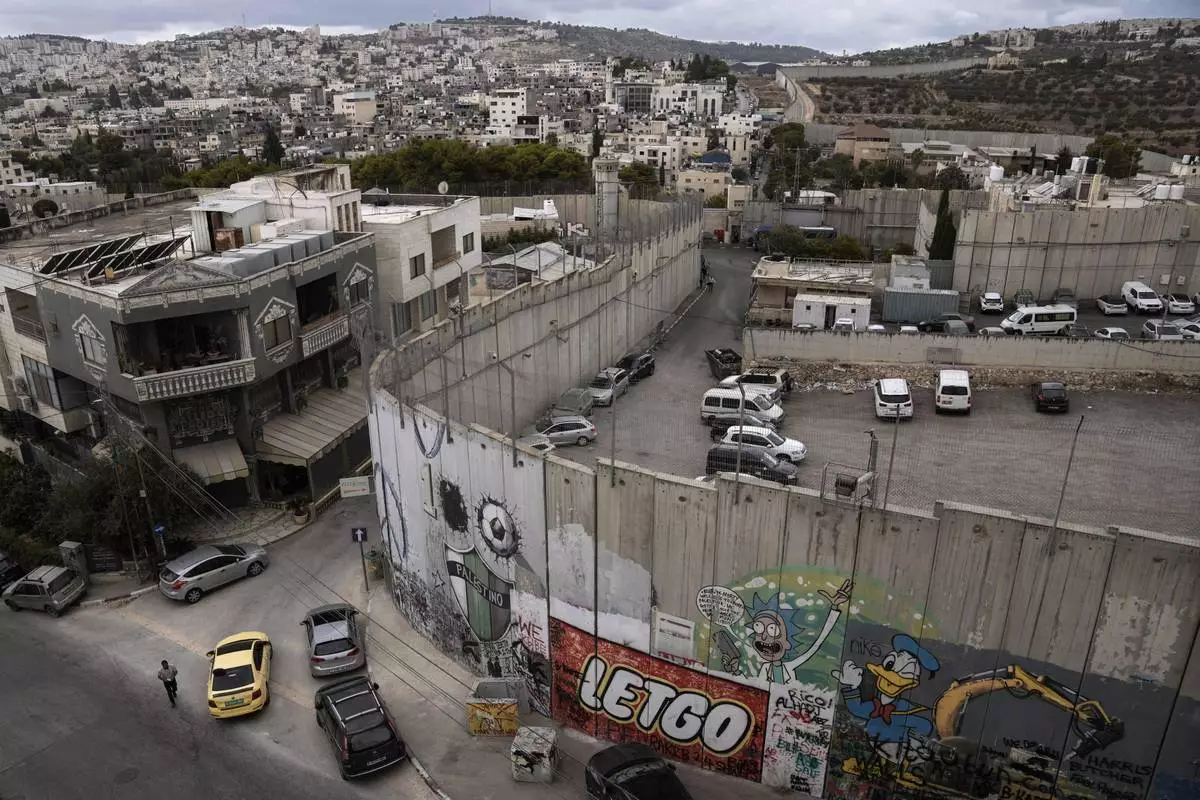
A view of a section of the separation wall in the West Bank city of Bethlehem Tuesday, Sept. 17, 2024. (AP Photo/Mahmoud Illean)
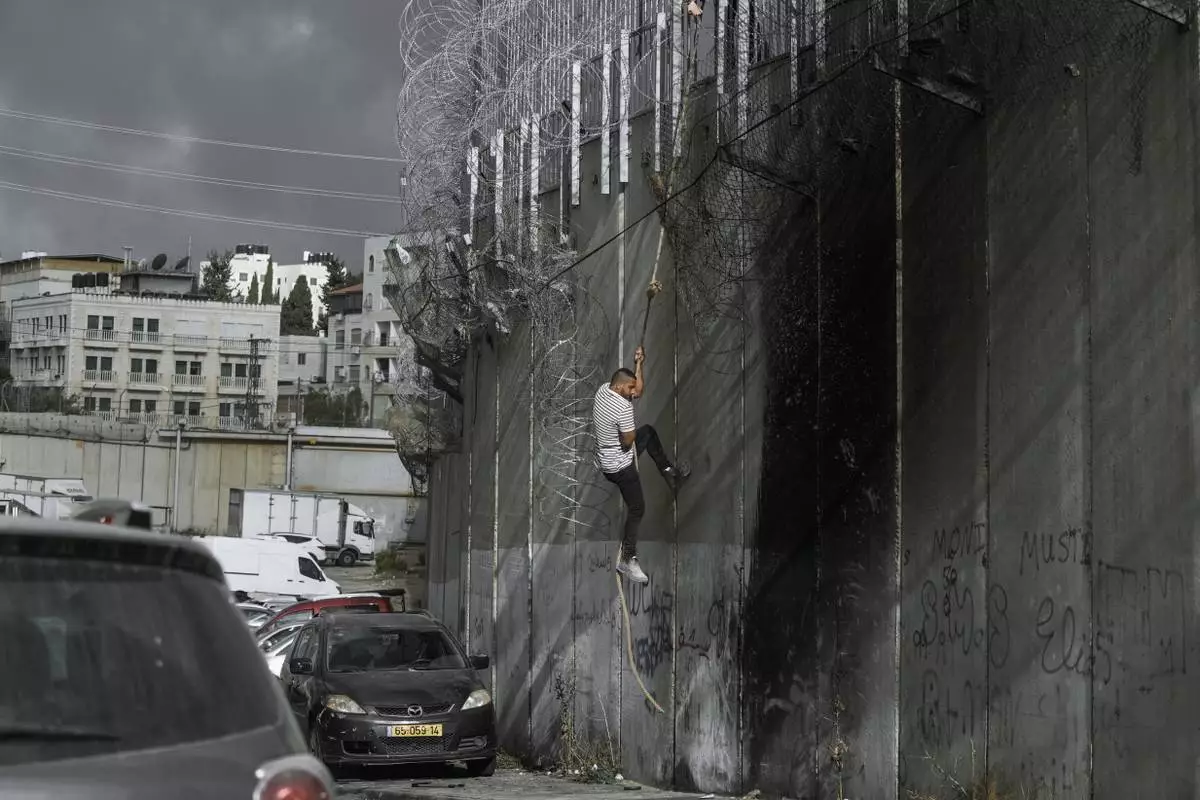
A Palestinian man climbs the separation wall at the town of al-Ram to illegally cross into Jerusalem, Sunday, Sept. 15, 2024. (AP Photo/Mahmoud Illean)


